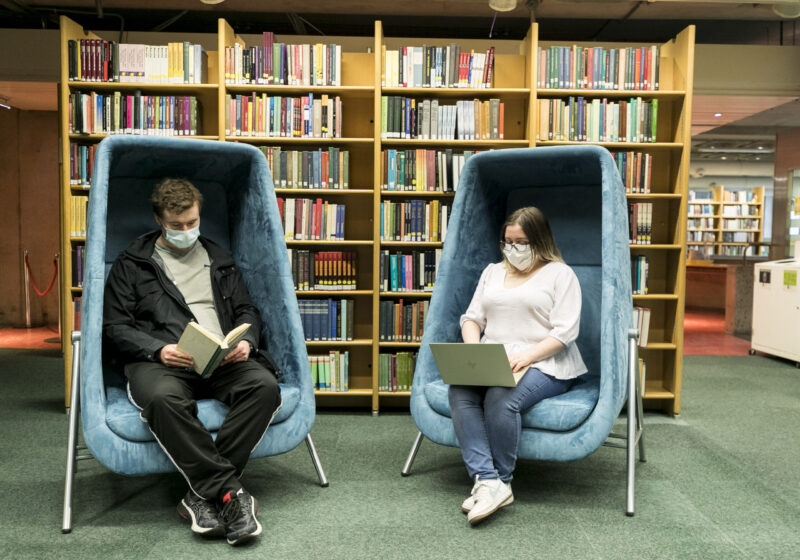Trinity has unveiled several new sensory spaces on campus to meet the needs of staff and students and to make College more inclusive.
Dedicated spaces in College libraries and student social spaces, as well as individual sensory rooms, will enable students to take a break from the College environment.
The plans for the spaces were developed by TCD Sense, which aims to make Trinity more inclusive by reviewing and improving existing spaces, creating new sensory spaces, building sensory awareness and delivering specialist supports to students who experience barriers to managing and adapting to the sensory environments of college.
The project currently spans more than 80 study spaces in the library, sensory areas within four student social spaces, as well as individual sensory rooms.
In a press statement, Provost Linda Doyle said: “It’s more important now than ever that everyone in the College community has access to places around the campus where they can find respite to focus, or to relax in peace. The TCD Sense Project is a wonderful addition to our campus and will contribute to the health and wellbeing of all.”
In a press statement, Kieran Lewis, a senior occupational therapist at Trinity, said: “We are focusing on areas which students use most. Over the past number of months, as well as the spaces in the library, we have designed sensory areas within four student social spaces, as well as individual sensory rooms. These have been designed to enable students to engage fully in the college environments and to allow for individuals’ different sensory preferences”.
Jessica K Doyle, the project officer for TCD Sense, said: “We are all sensory beings, and although we may not always be fully aware of it, sensation is everywhere. Sometimes we may crave activity and movement, louder music and natural light and brighter colours. At other times, we might feel extra sensitive and prefer quieter spaces with dim lighting and less going on.”
“Everyone has a unique sensory system and ways of perceiving and processing sensation that can change depending on time, context, mood, energy levels, neurotype & mechanism of perception”, Doyle added.
In May 2019, 150 students registered with the Disability Service in TCD completed a survey on sensory experiences. Some 68 per cent of respondents said there was no quiet space on campus that they could access easily if feeling overwhelmed. More than half of respondents said they go home or leave campus if feeling overwhelmed.
The spaces are being funded in part from a €5.4 million fund for students with disabilities announced by Minister for Higher Education Simon Harris earlier this year. Trinity has used €233,934 of its allocation of €482,364 on these developments. Additional resources of €126,500 have come from the Trinity Library, Trinity College Dublin Students’ Union (TCDSU) and the Director of Student Services.
TCDSU President Leah Keogh said: “It has been a joy to work alongside the Disability Service on this project which has uniquely provided quiet spaces in busy places. The attention to detail is what has made this project so effective.”
“This project has set the benchmark for what our student spaces should be going forward”, Keogh said.
Director of the Trinity Disability Services Declan Treanor added: “We have identified making Trinity a more inclusive place from a sensory perspective as a key aim in The Disability Service’s Strategic Plan. Plans are underway to look at developing a sensory map of Trinity, including sensory design principles in new developments, as well as adding sensory designed spaces in student accommodation and other spaces that are deemed to be useful to develop. We are looking at indoor and outdoor opportunities. We are also developing a sensory environment evaluation tool in collaboration with Technological University Dublin”.







